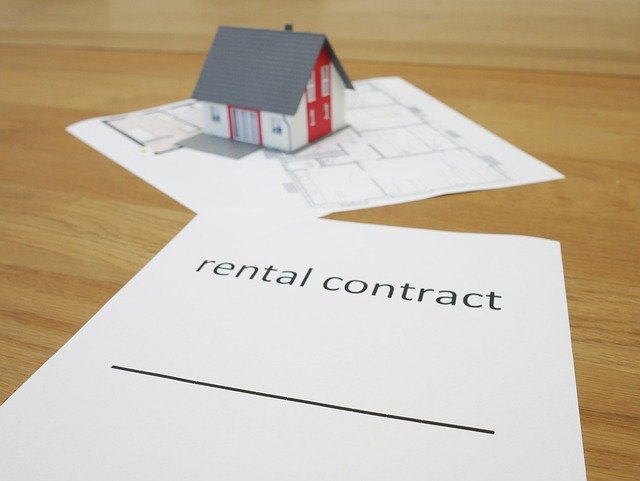Understanding Home Value: How to Determine What Your Property is Worth
Determining the value of your home is essential whether you're planning to sell, refinance, or simply want to know your current financial standing. Home values fluctuate based on numerous factors including market conditions, neighborhood developments, property improvements, and economic trends. While professional appraisals provide the most accurate assessment, several methods exist for homeowners to estimate their property's worth independently. This article explores reliable approaches to determining home value, what factors influence property worth, and how to interpret valuation results.

How to Find Home Value by Address
Finding your home’s value starts with your property address, which serves as the foundation for most valuation methods. Online home valuation tools use your address to locate your property in their databases and compare it with similar homes in your area. These automated valuation models (AVMs) analyze public records, recent sales data, and property characteristics to generate an estimate. Popular platforms like Zillow, Redfin, and Realtor.com offer free property value estimators that require only your address to produce a ballpark figure. However, these tools vary in accuracy depending on the data available for your specific location and how recently the information was updated.
What Factors Determine Property Values by Address?
Multiple elements influence your property’s value beyond just its location. Physical characteristics like square footage, number of bedrooms and bathrooms, lot size, and home age form the baseline for valuation. Property condition, including recent renovations or maintenance issues, significantly impacts worth. Location factors extend beyond the simple address to include school district quality, crime rates, proximity to amenities, and transportation access. Market conditions such as inventory levels, interest rates, and local economic health also play crucial roles. Even less obvious elements like HOA restrictions, zoning changes, or planned infrastructure projects in your neighborhood can affect property values over time.
What is My House Worth Right Now?
Determining your house’s current market value requires examining recent comparable sales (comps) in your neighborhood. Real estate professionals typically look at properties that sold within the last 3-6 months with similar characteristics to yours. For an up-to-date valuation, you can request a comparative market analysis (CMA) from a local real estate agent, who will analyze recent transactions and market trends specific to your area. Professional appraisals provide the most accurate assessment but typically cost $300-600. For immediate but less precise estimates, online valuation tools can provide a starting point by analyzing current market data and recent sales history.
How Accurate Are Online Property Values by Address?
Online property valuation tools offer convenience but come with limitations in accuracy. Most online estimates have a median error rate of 2-7%, with greater variance in rural areas or unique properties. These tools perform best in neighborhoods with high transaction volumes and similar housing styles. Accuracy also depends on how current the underlying data is and whether recent improvements to your home have been recorded. Some platforms allow homeowners to update information about renovations or special features to improve estimate accuracy. It’s important to remember that online valuations should be considered starting points rather than definitive assessments of your property’s worth.
How to Improve Your Home’s Value
Strategic improvements can significantly increase your property’s market value. Kitchen and bathroom renovations typically offer the highest return on investment, often recouping 70-80% of costs upon resale. Energy-efficient upgrades like new windows, improved insulation, or modern HVAC systems appeal to cost-conscious buyers. Curb appeal enhancements, including landscaping, exterior painting, and entry door replacement, make strong first impressions and can yield returns exceeding their cost. More affordable improvements like fresh interior paint, updated fixtures, and minor repairs can also positively impact value. However, not all renovations add equal value—swimming pools, highly personalized designs, or over-improving for your neighborhood might not recoup their costs when selling.
Professional Methods to Determine What is the Value of My House
Professional property valuation approaches differ from consumer-facing tools in methodology and accuracy. Licensed appraisers typically use three methods to determine value: the sales comparison approach (comparing to similar properties), the cost approach (calculating replacement cost minus depreciation), and the income approach (evaluating potential rental income for investment properties). Real estate agents create CMAs by analyzing multiple data points including recent comparable sales, current market conditions, and property-specific features. Both methods consider factors that online tools might miss, such as property condition, unique features, or neighborhood nuances.
Different valuation services offer varying levels of accuracy and detail:
| Valuation Method | Provider | Cost Estimation | Accuracy Level |
|---|---|---|---|
| Professional Appraisal | Licensed Appraiser | $300-700 | Highest (±2-3%) |
| Comparative Market Analysis | Real Estate Agent | Free (potentially leads to listing) | High (±3-5%) |
| Online AVM | Zillow (Zestimate) | Free | Moderate (±7% median error) |
| Online AVM | Redfin | Free | Moderate (±6% median error) |
| Bank Valuation | Mortgage Lender | Part of loan process | High (±3-5%) |
Prices, rates, or cost estimates mentioned in this article are based on the latest available information but may change over time. Independent research is advised before making financial decisions.
When to Trust Professional Valuations vs. Online Estimates
Understanding when to rely on different valuation methods is crucial for making informed decisions. Online estimates work well for preliminary research or monitoring general market trends, but critical financial decisions require professional assessment. For refinancing or home equity loans, lenders will require a professional appraisal regardless of online valuations. When selling your home, a real estate agent’s CMA provides better pricing guidance than automated tools. Property tax appeals typically need professional appraisals to support your case. The ideal approach combines multiple methods—starting with online research, consulting a real estate professional for market insight, and obtaining a formal appraisal for major financial decisions.
Home value determination remains part science and part art, requiring both data analysis and market expertise. By understanding the various methods available and their appropriate applications, homeowners can make more informed decisions about their most valuable asset.




